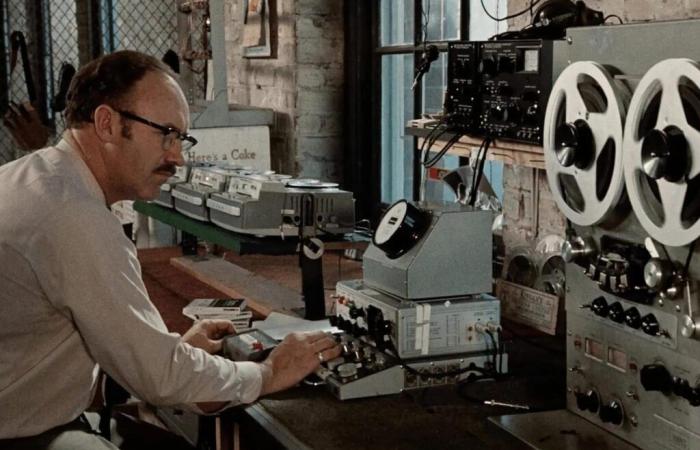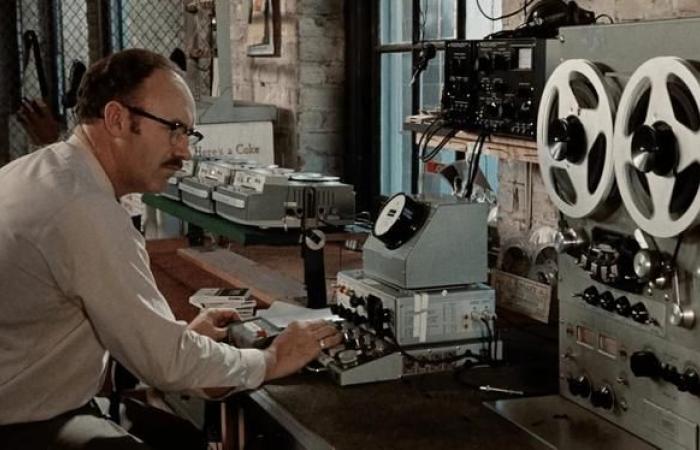ARTE – MONDAY DECEMBER 2 AT 10:25 P.M. – FILM
A private detective, a surveillance specialist, records, on behalf of a mysterious industrialist, the words of a young couple surprised in a San Francisco park. Tormented by old guilt, he fears becoming the instrument of a planned murder.
Made in 1974 after the success of Godfather, Secret conversation earned Francis Ford Coppola his first Palme d'Or at the Cannes Film Festival. The story takes up a particular principle, that of the supposed reconstruction of the truth from its fragments. It is, in fact, by overcoming the puzzle formed by the elements of the spied-on conversation that Harry Caul, the main character of the film, will attempt to dismantle what he suspects is a conspiracy and to find the answer to the questions which haunt him.
This variation around the Blow-up (1966), by Antonioni, where the image would have been replaced by sound, this desire for an analytical dissection of cinema itself are symptomatic of a generalized distrust, very fashionable in the 1970s, towards that of this and its alleged alienating power. But the film, whose filming coincided with the discovery of the Watergate scandal, also operates on a paranoid pattern fashionable in Hollywood production at the time.
Monumental urban space
Conspiracy theories, the fight of a lone man against an abstract and dehumanized force have, in fact, woven a link between numerous headlines of the moment, often marked by the memory of the countless speculations which followed the assassination of John Fitzgerald Kennedy (1917-1963). But Coppola subtly inflects this consoling ideology by making his character an anxious and bigoted neurotic whose own doubts will trigger a fatal mechanism.
Small figure, eternally dressed in a gray windbreaker, Harry Caul (geniusly played by Gene Hackman) loses his humanity by entering the heart of a monumental urban space, with cold and disused architecture. The precision of the frames, frontal, sometimes geometric, and a certain conceptual hieraticism thus link the film to works dismantling and criticizing the power of technology.
Through his technical know-how, the hero of Secret conversation invented an unlivable world of which he will end up being the victim, a universe of absolute transparency, of “hypercommunication”, a sonic “panopticism” (if such a thing were possible) which no longer leaves any chance for secrecy and the individual. Isn't the question posed by the film this: do perfect visibility and audibility have the slightest connection with the truth? Secret conversationit's a bit like Michelangelo Antonioni revisited by Jacques Tati.
Secret conversationfilm by Francis Ford Coppola (EU, 1974, 113 min). With Gene Hackman, Frederic Forrest, John Cazale. Available on demand on Arte.tv from December 2.





